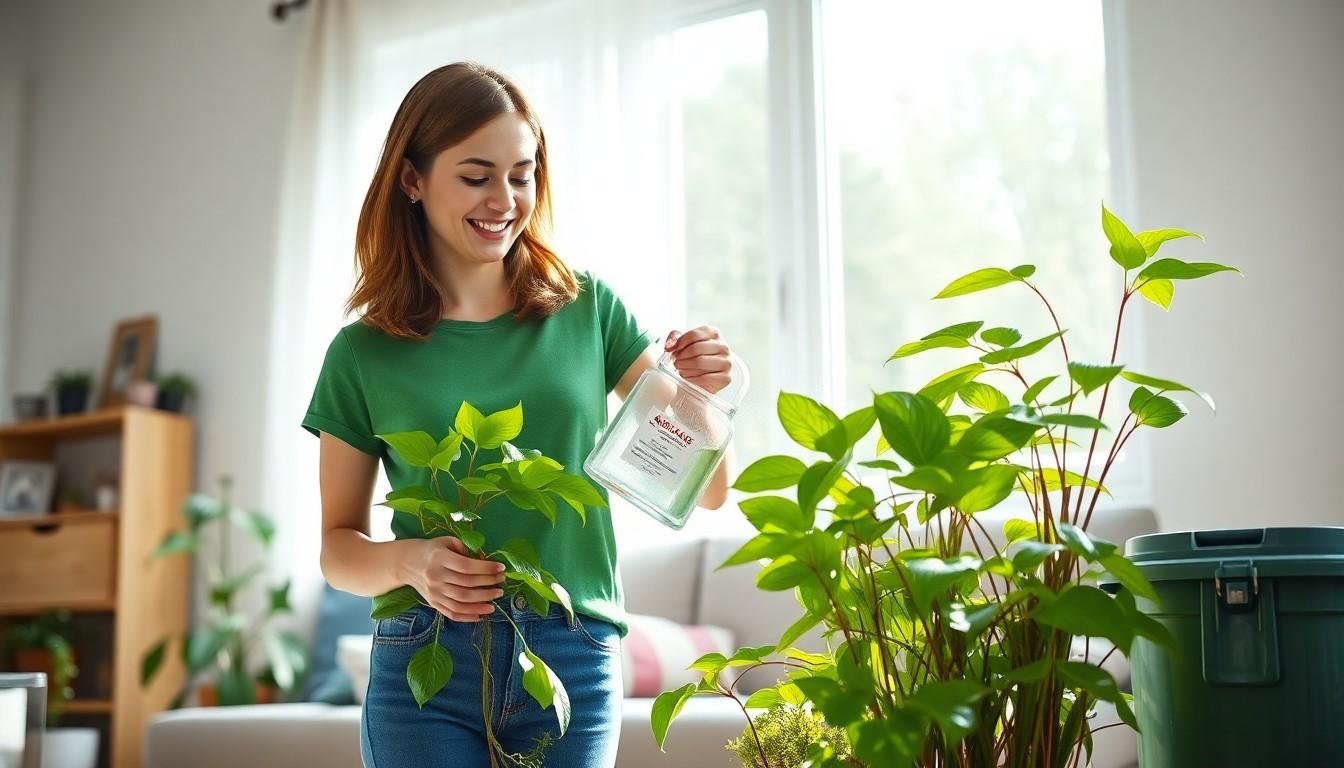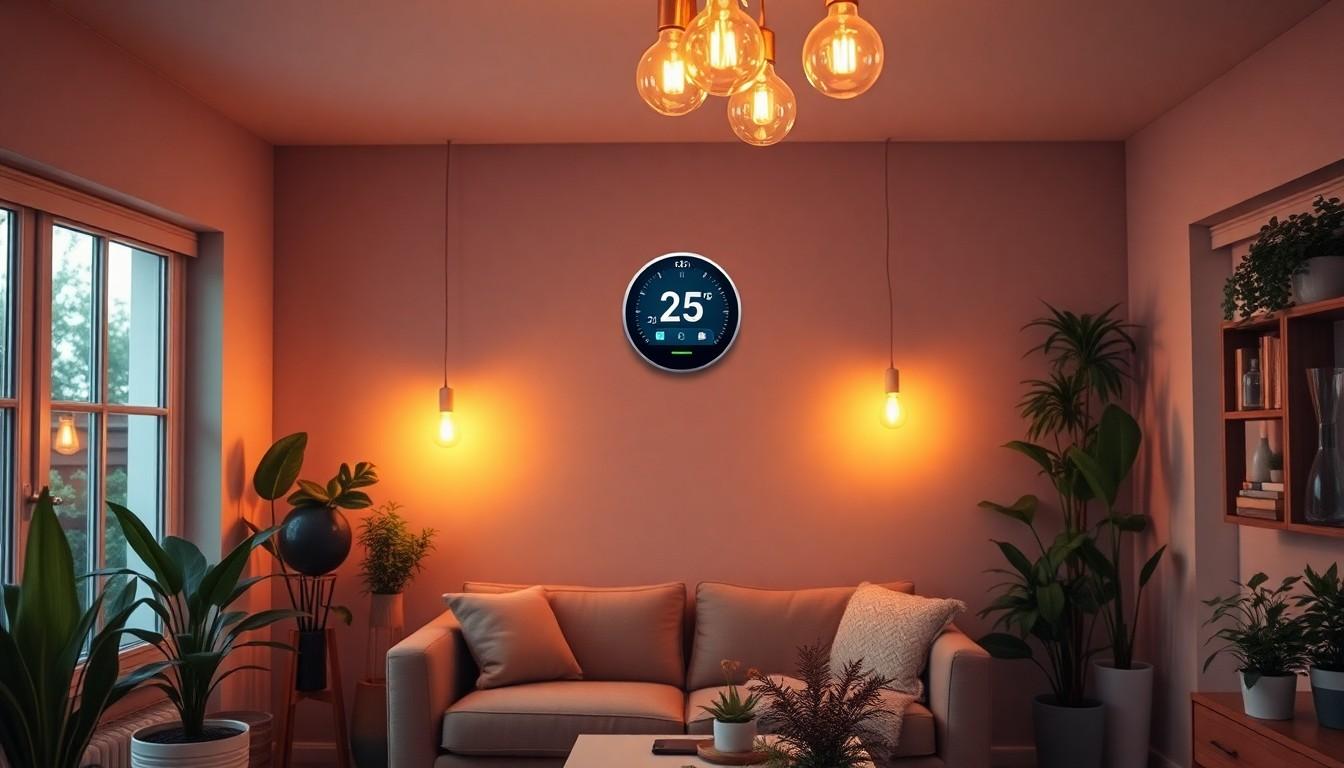Phone:
(701)814-6992
Physical address:
6296 Donnelly Plaza
Ratkeville, Bahamas.

In a world where plastic straws are the new villains and reusable bags are the superheroes, becoming eco-friendly at home isn’t just trendy—it’s essential. Imagine turning your living space into an eco-paradise where every small change packs a punch against climate change. It’s easier than you think and way more fun than you’d expect.
From swapping out light bulbs to embracing the power of composting, there are countless ways to green up your home without sacrificing style or comfort. Plus, you’ll impress your friends and maybe even earn some eco-bragging rights. So, whether you’re a seasoned environmentalist or just dipping your toes into the green lifestyle, let’s explore some simple yet effective tips that’ll help you save the planet while keeping your home cozy and chic.
Implementing eco-friendly practices at home significantly reduces environmental impact. Start by replacing traditional light bulbs with energy-efficient LED options. These bulbs consume up to 75% less energy and can last 25 times longer than incandescent bulbs.
Incorporate composting into daily routines for organic waste. It not only reduces landfill contributions but also enriches gardens with nutrient-rich soil. This simple practice encourages a circular approach to waste management.
Select reusable items over single-use products. For example, using stainless steel water bottles, cloth shopping bags, and beeswax wraps minimizes plastic waste. Each reusable item contributes to a lesser dependence on disposable alternatives.
Adjusting thermostat settings can lower energy bills while conserving energy. Keeping home temperatures between 68°F and 72°F during winter saves energy. Furthermore, using programmable thermostats enhances climate control efficiency.
Utilize natural cleaning products instead of harsh chemicals. Vinegar, baking soda, and lemon juice serve as effective cleaners while being non-toxic. These alternatives promote a healthier home environment.
Support local farmers by shopping at farmers’ markets. This practice reduces the carbon footprint associated with transporting food long distances. Seasonal purchases also encourage eating fresher produce.
Installing low-flow faucets and showerheads conserves water without sacrificing performance. These fixtures can reduce water usage by 20-30%. Such modifications contribute to overall sustainability efforts.
Prioritizing plants inside the home enhances air quality and promotes well-being. Indoor plants naturally filter air toxins, supporting better health. Opt for species that are easy to maintain for additional benefits.
Embracing these eco-friendly practices leads to sustainable living. Each action, no matter how small, contributes to a collective effort towards environmental preservation.

Energy efficiency plays a crucial role in reducing one’s carbon footprint at home. Implementing efficient practices leads to lower energy consumption and savings on utility bills.
LED bulbs consume up to 75% less energy than traditional incandescent light bulbs. Switching to these efficient alternatives immediately lowers electricity use and boosts lighting quality. They last significantly longer, with a lifespan of about 25,000 hours compared to 1,000 hours for incandescent bulbs. Opting for LED lighting can also enhance the aesthetic appeal of a home while minimizing the frequency of replacements. Upgrading to LED lighting encourages a sustainable approach to household energy management.
Smart thermostats offer advanced features that help optimize home heating and cooling. They learn individual schedules, adjusting temperatures automatically to save energy when no one is home. Programming these devices can result in energy savings of 10-12% on heating and 15% on cooling annually. Installation often proves straightforward, and many models can be controlled remotely via smartphone apps. Using smart thermostats fosters an eco-friendly lifestyle by promoting responsible energy consumption.
Water conservation plays a vital role in reducing household water usage. Sustainable practices lead to significant environmental benefits.
Installing low-flow fixtures offers an effective way to decrease water consumption. Low-flow showerheads can cut water use by up to 50%. Faucets equipped with aerators reduce flow rates while maintaining pressure. Toilets designed for low water usage often consume 1.28 gallons per flush, compared to older models that may use 3.5 gallons or more. Upgrading to these fixtures results in less water wasted during daily activities.
Collecting rainwater presents another simple yet impactful method for conserving water. Rain barrels capture runoff from rooftops, allowing homeowners to gather large quantities of water. This collected water can irrigate gardens and lawns efficiently. Using rainwater reduces dependence on municipal supplies, benefiting the environment. The practice of incorporating native plants into landscaping further enhances water conservation, as these plants require less irrigation.
Reducing waste at home plays a crucial role in eco-friendly living. Simple actions can lead to significant improvements in sustainability.
Composting organic waste greatly minimizes landfill contributions. Homeowners can divert kitchen scraps, yard debris, and paper products, turning them into nutrient-rich compost. This compost enhances garden soil while reducing the need for chemical fertilizers. Additionally, composting decreases methane emissions associated with decomposing organic materials in landfills. Implementing a composting system requires minimal effort, thus offering an easy path to sustainability.
Embracing minimalism encourages individuals to consume less and value experiences over material items. It involves decluttering living spaces and choosing multifunctional items, which reduces waste and simplifies daily life. Prioritizing quality over quantity promotes the use of durable products designed for longevity. Donations or swaps activate a circular economy, extending the life of items instead of discarding them. Thus, adopting a minimalist mindset enhances personal consumption habits while supporting overall waste reduction efforts.
Sustainable products play a crucial role in eco-friendly living at home. Utilizing these products can significantly reduce environmental impact while promoting healthier lifestyles.
Selecting eco-friendly cleaning supplies contributes to a healthier home. Natural ingredients effectively clean surfaces without introducing harmful chemicals. Look for products labeled biodegradable or non-toxic. Brands that prioritize sustainability often use recyclable packaging, minimizing waste. Vinegar, baking soda, and lemon juice serve as great alternatives to conventional cleaners. These items clean effectively and reduce reliance on synthetic chemicals, ultimately benefiting indoor air quality.
Investing in reusable items enhances sustainability efforts at home. Opting for stainless steel water bottles eliminates the need for single-use plastic bottles. Cotton tote bags provide an eco-friendly alternative to plastic bags when shopping. Food storage containers made from glass or silicone reduce waste and preserve food freshness. Using beeswax wraps instead of plastic wrap contributes to an eco-conscious kitchen. Embracing these products leads to less waste and fosters a more sustainable lifestyle, making a noticeable difference in the environment.
Embracing eco-friendly practices at home is not just a trend; it’s a necessity for a sustainable future. Each small change contributes to a larger impact on the environment. By adopting energy-efficient solutions and prioritizing water conservation, individuals can significantly reduce their carbon footprint.
Choosing sustainable products and minimizing waste fosters a healthier planet. It’s about making informed choices that reflect a commitment to environmental stewardship. With every step taken towards a greener home, individuals inspire others to follow suit, creating a ripple effect of positive change.
Ultimately, living sustainably is a journey that benefits both the individual and the planet, proving that every effort counts in the fight against climate change.